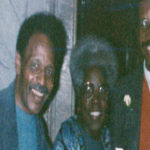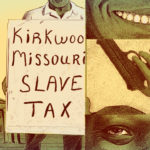
The “Long” 1968: A Historical Overview
What happened in the tumultuous 50 years before 1968, why 1968 shaped the 50 years that would follow, and how that pivotal year may yet shape our future.

What happened in the tumultuous 50 years before 1968, why 1968 shaped the 50 years that would follow, and how that pivotal year may yet shape our future.

When Great Britain announced in January 1968 its military withdrawal from colonial holdings bracketing the Indian Ocean, it announced an era of reckoning in which colonial legacy and Islamically-oriented political parties vied for power across the Middle East. Today, Sudan and Yemen remain salient examples of that era’s lasting effects.

There was a time when I had dreams, infrequently but strikingly, that my mother had died. These occurred some years ago when I did not talk to her very regularly or see her often.

Starbucks uses for its in-stores soundtrack music celebrating individual tenacity and collective rebellion, but that supposed renegade spirit takes on a different context when the soundtrack is bebop jazz, and two African-American customers are arrested for failing to place their order in due time.

The reason the Grammys repeatedly lead to such a feeling of disappointment and letdown is, ultimately, because the Grammys in their current form cannot possibly reflect the intersecting and complicated notions of musical value held by its audience. The best the Recording Academy can do—and indeed, what the Academy should do—is make transparent its musical priorities.

What is special about Latino representation in pop music this past year is that not only is an often overlooked ethnicity getting the representation that it deserves, but also that its representation has been diverse.

Just as scholars consider how baby boomers’ Cold War experiences shaped their understandings of global politics, will future historians ask how millennials’ active shooter drills shaped their understandings of national politics?

Ten years after Charles “Cookie” Thornton murdered six people at Kirkwood City Hall in Missouri those who knew him struggle to identify the combination of emotions that led to his actions.

For more than a century, the Veiled Prophet Organization has faced race-based protests; however, during all of that time, the organization has been able to claim innocence against racism based on historical context: they made no explicitly racist comments in public, and their exclusionary practices were the same as other fraternal organizations.

Turkish writer Ece Temelkuran explains during a recent interview why targets of autocrats must not be victims, why language is the true home, and why it is children she first consults regarding the fundamental human need and capacity for beauty.